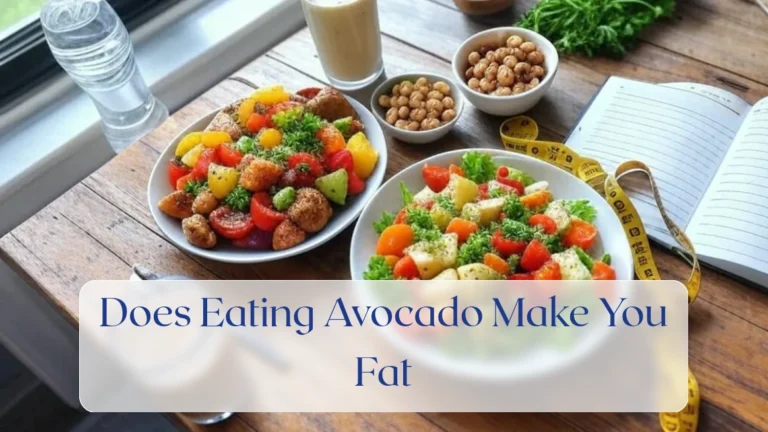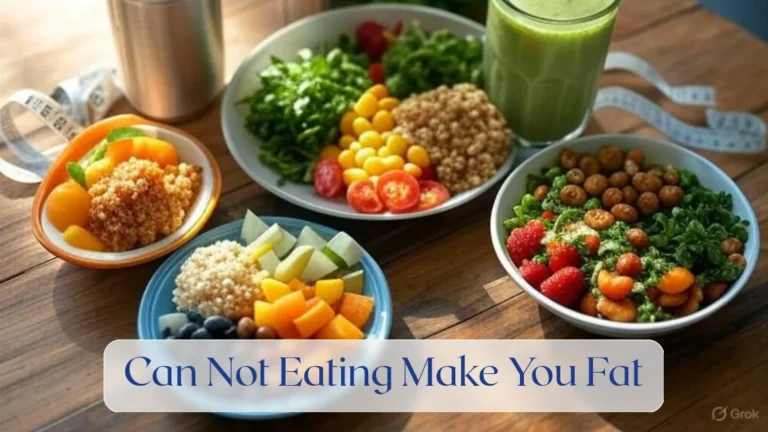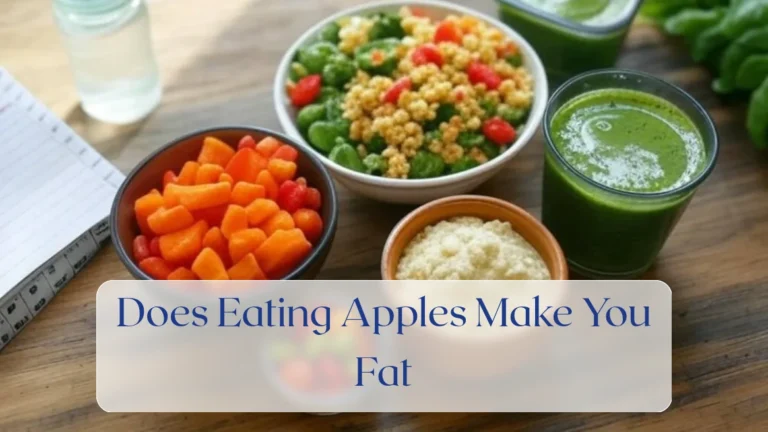Will Healthy Fats Make You Fat? The Truth Revealed
Is that delicious ghee making you gain weight? Let’s separate fact from fiction! Wondering if healthy fats are your enemy or your friend? This guide will help you learn to incorporate healthy fats into your Indian diet without weight gain. Healthy fats are essential for a balanced Indian diet and won’t make you fat if consumed mindfully.
Understanding Healthy Fats in Indian Cuisine
What are healthy fats? They’re essential nutrients that provide energy, support hormone production, and aid in nutrient absorption. In Indian cooking, we commonly find healthy fats in ghee (clarified butter), coconut oil, nuts like almonds and cashews, and seeds like chia and flax.
It’s important to understand the different types of fats:
- Saturated fats: Found in ghee and coconut oil, these are solid at room temperature. While sometimes demonized, they are essential in moderation.
- Monounsaturated fats: Abundant in olive oil (though less common in traditional Indian cooking), avocados, and some nuts, offering heart health benefits.
- Polyunsaturated fats: Including omega-3 and omega-6 fatty acids, found in flax seeds, chia seeds and certain nuts. Crucial for brain health and reducing inflammation.
The Role of Fats in Your Body
Healthy fats are vital for several bodily functions:
- Hormone Production: They are building blocks for many essential hormones.
- Nutrient Absorption: Fats help your body absorb fat-soluble vitamins (A, D, E, and K).
- Energy Source: Fats provide a significant source of energy for your body’s activities.
Myths about Healthy Fats and Weight Gain
Let’s debunk some common misconceptions:
- Myth 1: All fats make you fat. This is false. Healthy fats in moderation contribute to a balanced diet and don’t lead to weight gain. It’s the excess of any type of fats that causes problems.
- Myth 2: Ghee is always unhealthy. In moderation, ghee (a staple in many Indian kitchens), with its butyric acid, is not inherently unhealthy. In fact, many cultures swear by the healing properties of ghee obtained from Cow’s Milk. It’s a significant source of vitamins and minerals and contains some unique antioxidant agents
The key to managing your intake with regard to weight management is portion control.
Healthy Fats vs. Unhealthy Fats: The Indian Perspective
Many traditional Indian cooking methods involve potentially unhealthy fats:
- Hydrogenated oils: These artificial trans fats are detrimental to heart health. Be cautious of packaged foods which mention such vegetable ingredients.
- Excessive fried foods: Deep-fried snacks and dishes, while delicious, can contribute to significant calorie intake and weight gain.
Choosing healthier fats is paramount:
- Ghee vs. Vegetable Oils: Use ghee in moderation and Opt for coconut oil as healthier choices rather than heavily processed vegetable oils often used for frying. For many Indians, moderate ghee intake in contrast to the unhealthy counterparts, like those industrial seed oils, holds some merits given their body compositions through years of evolutionary preference. Furthermore, recent research has shown evidence that indicates potential protective cardiac mechanisms related to healthy mono-rich and satiric-rich dietary fat composition present in traditionally obtained Ghee, in contrast with conventionally fabricated vegetable oils, and is only applicable to an appropriate group of people, with many parameters required for optimal outcomes. Always use it mindfully and consult health advisants.
- Nuts and Seeds: Incorporate nuts and seeds into your diet—they’re healthy fatty add-its to snacks, main courses and are calorie-dense and provide wholesome filling nutrition and important fibre constituents necessary for regularity.
Balancing your fat intake requires incorporating complex carbs and proteins – a standard, well-balanced meal plate which forms the essence of an optimal Indian meal plan, containing everything from chapatis and legumes to rice and healthy proteins from lentils and vegetables . Ensure proper portion size in addition.
How to Incorporate Healthy Fats into Your Daily Indian Diet
Breakfast Ideas with Healthy Fats:
- Add a teaspoon of ghee to your porridge
- Sprinkle nuts and seeds (flax, chia) onto your breakfast cereal or yogurt
Lunch & Dinner Ideas with Healthy Fats:
*Use Nuts and seeds: Add chopped nuts which give satisfying nutritional boosts to our standard Indian salads, daals(lentils) and curries, for optimal palatability that adds flavour and texture
*Roasted Vegetables as sides: Prepare roasted mixed vegetables in olive oil, to go with your typical lentil and vegetable preparations
Snacking Smart with Healthy Fats:
- A handful of almonds or walnuts
- A small bowl of yoghurt with a sprinkle of flax seeds or some other seed
- Ghee poha containing healthy fats obtained from ghee prepared reasonably at suitable ambient temperature which minimizes thermal degradation
Portion Control and Calorie Intake: The Key to Success
Understanding calorie density is crucial. Healthy fats are calorie-dense; therefore even a small portion size would have quite a calorific content impact. Similarly not over consumption even if that is something considered fairly healthy has to be done within mindful calories and proportion control, so you do not end up overshooting, when keeping optimal and desired goals for fitness and weight tracking. Calorie counting isn’t always necessary, but you’d improve if your meals are fairly balanced and consistently moderated according to what is healthy for you and what does not cross the amounts required in your optimal daily calories. Through tracking – if required – a balanced consumption might highlight if there is any need for fine-tuning to remain balanced between daily required meals and minimal expenditure/extra exercises for optimal maintenance.
Frequently Asked Questions
- Are all healthy fats created equal? No, different healthy fats offer unique benefits. They shouldn’t automatically mean eating large quantities of them in absence of others and also in conjunction to other less healthy intake, if this is the problem case. Maintain a balance as you do.
- Can I lose weight while eating healthy fats? Yes, if you consume them as part overall calorie deficit; healthy fats promote satiety keeping hunger at bay, making appropriate diet maintenance a plausible experience instead of a hard one.
- How much healthy fat should I consume daily? A good amount that should still contribute suitably towards minimal daily protein need is optimal and not excessively extra high calorie intake, though it would generally vary according to individual. The Indian plate proportion of carbs, proteins and healthy fats to optimal meals still apply here.
- Is ghee really that bad for you? No, ghee isn’t inherently “bad;” it contains high calorie contents (and more of those calories obtained in its fatty contents) as long it isn’t extensively consumed in absence of proper portion control, alongside other essential meal plan components to help balance this out to your needed requirement. The calorie consumption has to remain appropriate and not necessarily so high, in context and proportionality to other meal contents. An over-consumption may indicate issues to be checked for proper balanced intake and therefore further assessment when this is an arising matter that warrants caution.
- What are some healthy Indian fat substitutes? Substituting excessively saturated-fat is a good healthy habit , if the meals are only balanced with similar calorie and nutritional proportions in all aspects and does include similarly crucial aspects like proteins too. Instead it only replaces one, not omitting another essential components found commonly in meal contents.
Conclusion
Healthy fats are not the enemy; essential to the diet, they improve in nutrition and satiate for better meal planning, aiding better moderation which supports the aims for daily calories for optimal physical well-being. portion manage and calorie intake appropriate moderation would however significantly and importantly assist in optimal successful, balanced well-being outcomes for Indian meals and plans. This might require fine-tuning in some areas and adjusting through habit for best results. Share your thoughts and experiences in the comments below.



